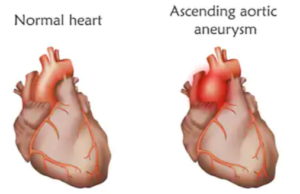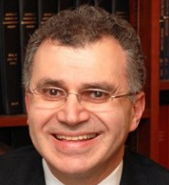The causes of chest pain combined with difficulty swallowing can be benign…or life-threatening.
The symptom duo of chest pain plus trouble swallowing is very frightening.
It can occur suddenly and at any time for people who have the life-threatening — or benign — conditions that would lead to this pairing of symptoms.
The expert source for this article about the causes of chest pain with trouble swallowing is John A. Elefteriades, MD, William W.L. Glenn Professor of Surgery, and Director, Aortic Institute at Yale-New Haven, New Haven, CT.
This pair of symptoms is nothing short of alarming. “Trouble swallowing generally reflects problems with the esophagus, the swallowing tube,” says Dr. Elefteriades.
“These problems may be due to benign conditions, like reflux disease, or to tumors.
“Pain during swallowing reflects partial blockage impeding the contractile wave that propels food in the esophagus.”
Hopefully, chest pain with difficulty swallowing is not more serious than some acid reflux (gastroesophageal reflux disease).
But Dr. Elefteriades adds, “An aortic aneurysm can, rarely, put pressure on the esophagus by virtue of its size and cause the symptom complex” of chest pain and trouble swallowing.
What is an aortic aneurysm?
- An aneurysm of the thoracic aorta is a portion of this great vessel that has abnormal enlargement.
- When an aortic aneurysm causes symptoms, it is time for surgical repair.
- Usually, these do not cause any symptoms, and most are discovered by accident during imaging for an unrelated issue.

Shutterstock/Veronika Zakharova
When an aortic aneurysm is asymptomatic and the patient does not have a connective tissue disorder, the aortic aneurysm is given a “watchful waiting” approach.
This protocol is to see if it gets big enough to warrant surgical repair; routine imaging tests are done to follow it.
Trouble swallowing along with chest pain can also be caused by a hiatal hernia, acid reflux or esophageal cancer.




























